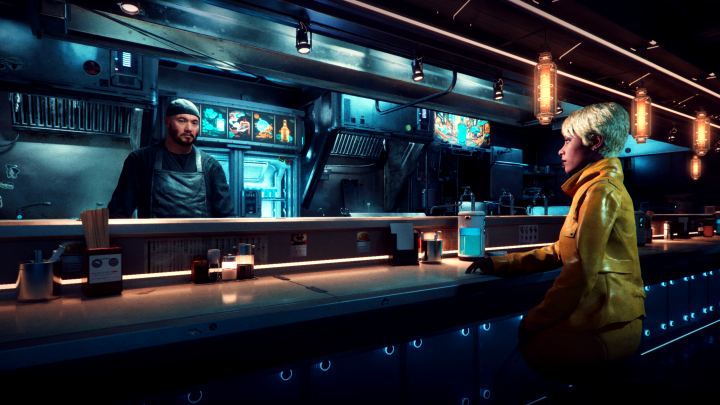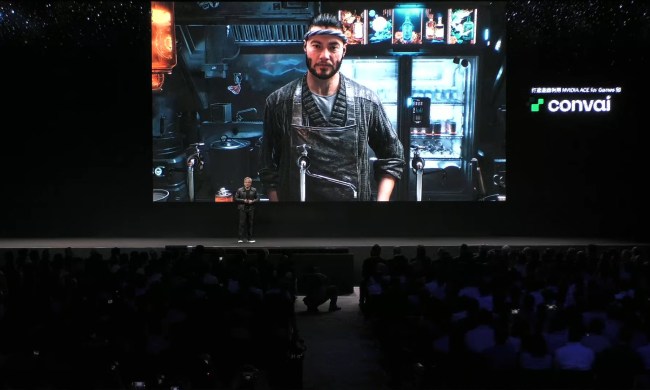
Every year, the annual Game Developers Conference (GDC) acts as an all-important watercooler moment for the video game industry. It’s the one time a year where developers can widely gather to share their innovations, discuss the state of the industry, and advocate for change at scale. This year’s show, though, is especially crucial. It comes amid a catastrophic wave of layoffs across studios that’s put well over 10,000 individuals out of work. That’s happening as executives look to tools like generative AI to cut costs, which has created a firestorm over labor issues.
Unionization and worker protections are set to be the headline of this year’s show, and there’s a major player in attendance that will speak to those issues. Representatives from the Screen Actors Guild-American Federation of Television and Radio Artists (SAG-AFTRA) will be on hand this week, hosting panels on queer representation and the dangers of deepfake technology in games. While the union will speak to several parallel issues currently plaguing the industry, it’ll also be a key voice in championing the ethical use of AI during a week where that’s sure to be a heated subject.
In a conversation with Digital Trends ahead of GDC, SAG-AFTRA’s Sarah Elmaleh, chair of the Interactive Negotiating Committee, and Ray Rodriguez, chief contracts officer, spoke in-depth about the union’s position on AI in gaming. Both Elmaleh and Rodriguez laid out what the committee believes is the correct way to handle a technology that’s unlikely to go away.
“I certainly view AI with apprehension and a great deal of concern about what could happen, but I don’t view it in an exclusively negative light,” Rodriguez tells Digital Trends. “It is the challenge that is before us, and it’s a challenge that we should feel confident we can work through.”
The AI debate
To a casual observer, it may seem like SAG-AFTRA has accelerated its efforts to protect video game actors in recent months. Its involvement at GDC caps off a busy few months following the conclusion of 2023’s successful TV and theatrical performers’ strike, one that earned actors new safeguards against AI usage. Since then, all eyes have been on the union as it works to establish similar guardrails for video game actors (its most recent initiative is a tiered agreement system that expands production budgets).

“I think the union has been visible more generally,” Rodriguez says. “I think a lot of that has to do with a series of issues that have really focused the attention of performers and other constituents of the industry on the need for additional rules of the road. AI is the biggest example of that. It’s certainly the example that’s most pertinent to the video game space in terms of an issue that’s underscored for people the idea of having union protections.”
Generative AI has been an especially complicated topic for video games this year, as companies move to implement it into games. At this year’s CES, Nvidia announced an expansion of its Ace microservice, which is capable of creating fully voiced non-player characters (NPCs) with AI. That set off debates about ethical usage after Nvidia initially skirted around a question on data usage. It would eventually backtrack and affirm that it had the rights to everything powering Ace, but an interview with Purnendu Mukherjee, the founder of Convai (a tool that helped build Nvidia’s Ace CES demo), revealed that the underlying tech is built on open-source AI models. Mukherjee admitted that he had no way of knowing if those models contain copyrighted materials.
Moments like that have stirred confusion in the video game industry and built a mainstream resistance to the emerging tech. SAG-AFTRA would wade into its own controversy at CES after reaching a deal with Replica Studios, the creators of an AI voice-acting tool. The news stirred up some concern among SAG members, with some saying they were never told about the deal despite messaging that “affected members” had approved it. Elmaleh chalked that up to a misunderstanding about how committee approval works and provided a clear explanation of how the deal came to be.
“We were approached by [Replica Studios],” Elmaleh tells Digital Trends. “They wanted to partner with actors in a way that was respectful. They came to us to trust us to convey to them what that would look like in detail. We had really productive, long-term discussions around hammering out making the work specific, real, and consequential. We would do the same for other folks that come to us in good faith to discuss this. So it’s not like they’re blessed with some specific privilege — it’s that they came to us to talk and we’ve had other such conversations that I hope will be revealed in the future.”
History teaches us that the only way out is through.
That position makes it clear that similar deals may pop up soon, which is bound to spark additional debates. However, both Elmaleh and Rodriguez stress that the union isn’t out to shut down the tech. Rather, Rodriguez believes that the best way to fight against potential misuse of the tech is by taking the reins.
“The whole history of the entertainment industry is a history of disruptive technologies,” Rodriguez says. “There were people who thought the advent of talkies would be the end of the motion picture business. The lesson from that is that you can’t avoid new technology and, second of all, the sky thus far isn’t actually falling. It feels like it! I don’t mean to make light of anyone’s concern, especially as it comes to AI technology. It does contain within it the risk of an existential threat, but history teaches us that the only way out is through. You are not going to be able to skirt around technological development and protect people by just avoiding the technology.”
The fight for ethical use
Actively working with AI companies is only the start of SAG’s efforts; the real work comes from building an ethical use of the tech alongside the companies adopting it. That’s a key reason that the Replica Studios deal came together. When that deal was announced, Replica Studios CEO Shreyas Nivas told me that Replica exclusively uses data from consenting actors.
“The final models are always fine-tuned on custom training sets that have been licensed from voice actors,” Nivas told me over email at the time. “Public-facing voices are never composed of any voice data obtained from open-source materials.” Details like that are key to understanding why the SAG committee would approve an AI deal after spending months fighting against the tech.
“We are looking to establish fair rules of the road that will protect our members when they work using this technology,” Rodriguez says. “There’s use of AI technology and there’s exploiting people through AI technology. We want to facilitate the former and prevent the latter. So we want people to have rights to their voices, their images, their movements and have that be protected so they know what their work is being used for, they’re consenting to what their work is being used for, their being paid fairly for what their work is being used for – including ways in which their work can be manipulated.”
It should operate like a prosthetic extension to yourself.
Elmaleh, a prolific voice actress who has worked on a range of projects from Gone Home to Fortnite, shares the same goal. In her view, AI should be a controllable tool that allows actors to get more value out of their work, rather than a replacement.

“If you have the agency, the communication, and the collaboration in place as you approach granting this ability to your collaborators, then it should operate like a prosthetic extension to yourself, where the value flows back to you when your expression flows from you,” Elmaleh says. “It’s able to add to your ability to be in multiple places at once or execute certain things, but it’s not replacing you. It’s not an automaton on a line that displaces you from your value; it’s just an extension.”
It’s an optimistic view — and it’s impossible to know if game studios looking to adopt generative AI feel the same way. That’s where tensions come into play. The more the tech is normalized in the industry, the more risk there is for scope creep. SAG aims to reward companies that commit to certain ethical guidelines, but the current lack of regulation on the tech makes it hard to assure that everyone will play by the same rules. And in a moment where companies are cutting thousands of jobs while looking to AI, any support of the tech is bound to create concerns.
Still, Elmaleh is hopeful that AI can coexist with traditional acting as it exists now. “I see them as parallel tracks of advocacy and communication,” she says, noting that bespoke performances still give games a creative and competitive edge over an algorithmic product. “If we are discussing it as a shortcut for traditional forms of performance, then I’m OK identifying it as a shortcut. Our industry operates on shortcuts under enormous pressure to make games all the time.”
While building an ethical framework for AI usage in games is important, it’s not a wholesale solution to the industry’s current labor crisis. Mass layoffs have underscored the need for more protections for game makers, especially as tech like generative AI looms. Though SAG-AFTRA doesn’t represent developers, Elmaleh outlines why anyone who cares about games should be invested in how these topics are handled, whether by the companies producing games or through the unions protecting their workers.
“As someone who cares about developers, it makes me furious and distraught,” Elmaleh says in regard to recent layoffs. “I wish for them the same tools that we benefit from as actors to defend ourselves with. SAG-AFTRA isn’t organizing game developers, but I’ve always stood in solidarity with game developers in their right to self-determine what they need to have safe, sustainable, long-term careers in this space. I feel really passionately that when we burn people out and abuse them, what we lose is games … That’s our loss to feel.”



